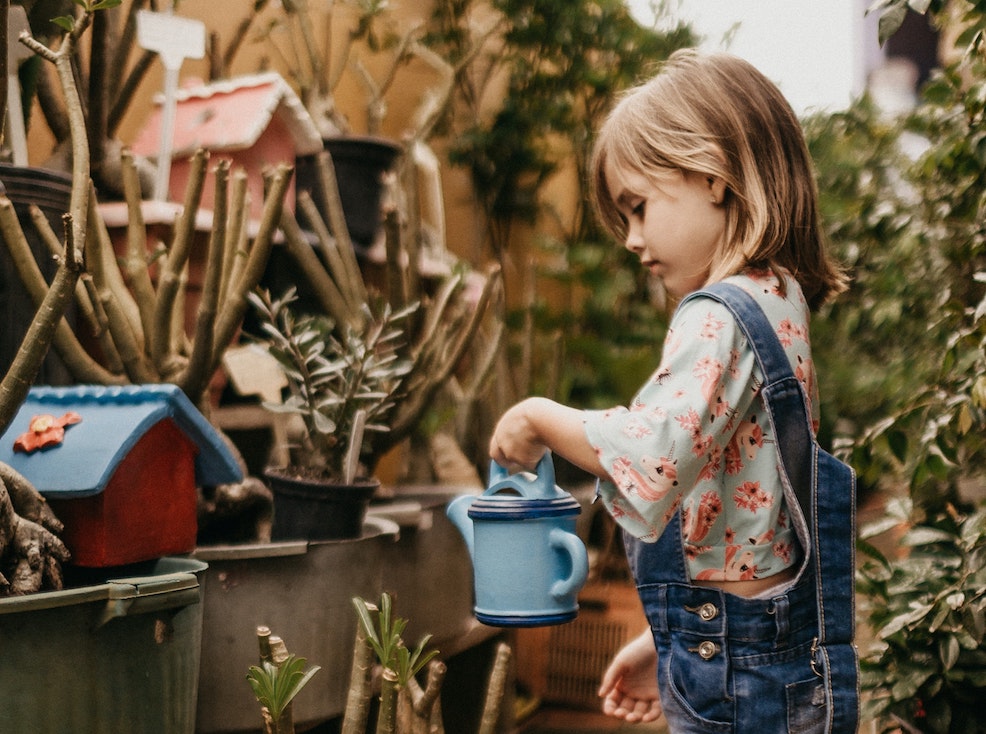
How does your child feel about this international lifestyle?
As a mother of a 15-months old daughter, the topic of how to raise children in a global world especially when you are living a nomadic lifestyle yourself preoccupies me. While I focused all my work and energy on the topic of the Expat Partner Identity Struggle and Career Planning abroad, the discussion around raising so-called TCKs (Third-Culture-Kids) is getting closer to me.
An introduction to the subject of TCK
When I became a mother for the first time, I started my research project and tried to learn anything I could about how to feed a baby, how to bathe a baby, how to dress a baby when it is cold … you name it. With time I understood that the list of potential questions is endless and the list of answers even longer. Most questions are not answered directly. There are countless approaches, opinions, experiences, and social truths. With time and experience, many mothers figure out that they have to create their very own way of doing things. We are at our best when we rely on our instincts. When we feel good, we also pass this warm feeling on to our children. My daughter was born abroad, but she doesn’t know about this exciting lifestyle yet. For the time being, we, her parents, are her whole universe. Therefore, I can hardly speak as an expert on the subject of integration of the whole family, including children.
But some great coaches work specifically on this topic. For this article, I have therefore asked my colleague Ann Wöste to give us an insight into the topic. She recently gave an excellent talk on this topic which I would like to link here. Please have a look if you want to hear more about it.
For now, I’d like to turn the conversation over to Ann Wöste and look forward to your feedback on this either in the comments or by emailing me at info@sharethelove.blog. You can find Ann’s contact details in the infobox.
Meet Ann Wöste
Ann is a certified coach, child and youth coach and trainer. Her coaching service is called „Überall zu Hause – Coaching für Expat Partners und Third Culture Kids“. As you can see from this title she is specialized on coaching in German. She has her practice near Wolfsburg but also works online for families living abroad. She has lived in Ireland, Spain, Portugal and almost 10 years in China. Shanghai is also where her daughter was born. You can contact her at Coaching@die-globale-familie.de.
How to connect

I have been dealing with the phenomenon of so-called Third Culture Kids for many years.
As an accompanying expat partner and mother of two teenagers who spent a large part of their childhood in cultures that are not their own, this issue has affected me personally and helped me to better respond to their needs and feelings.
As a coach for expat partners and Third Culture Kids, I help people navigate the various challenges of living abroad with family well. Above all, I am always keen to point out that it is very helpful to deal with all the consequences, both positive and difficult, in advance of a posting. The clearer it is to parents what a highly mobile lifestyle and growing up across cultures with all the associated transition phases, farewells, and readjustment processes mean for their children, and what they themselves can do to better absorb these sensitive phases, the more consciously they can decide whether this path is the right one for their family at this time.
What is clear is that the experience of growing up in an international environment with diverse impressions of foreign cultures, languages, and ways of life is an enriching one!
People learn best when different senses are involved. Immersing oneself in the completely new is therefore the best foundation for a long-lasting learning experience. Seeing, hearing, smelling, tasting, and feeling, all these senses are addressed when we try to embrace a new life miles away from home.
"What is clear is that the experience of growing up in an international environment with diverse impressions of foreign cultures, languages, and ways of life is an enriching one!"

Children who are allowed to experience this gain so many useful
qualities and resources as adults: they are eager to travel, open to new challenges and other cultures, tolerant and inquisitive, interculturally experienced and competent, adaptable, and creative and versatile when solving problems. They usually speak more than one language, have friends all over the globe, and have real experiential knowledge as opposed to just learned know-how. They are highly flexible in terms of location and profession and are therefore a valuable asset as employees of globally operating companies and inspiring discussion partners.
But this kick-start for the personal and professional resume does not come without a price tag.
The transition phase is an emotionally challenging one, accompanied by inner turmoil, great uncertainty, sleepless nights, fears, stress, and grief, and therefore takes a lot of energy. For children and adolescents leaving home, the climate, language, caregivers, home environment, habits, school environment, teachers, style of dress, food, customs, daily routines, traffic, sounds, smells, and much more change overnight.
At the same time, relationships and roles break away, they have to say goodbye to people they love for a time or even forever. Saying goodbye is always associated with grief. However, there is often little room or time for these feelings during the stressful time of departure. Many parents are also unaware of how important it is for mental health and an emotionally stable arrival to accompany their children well through this grief.
When children sense that their feelings are acknowledged and they feel that their parents recognize how real and hard their losses are, they can start to process these feelings. Parents should meet their grief with compassion and understanding so that it can be lived out and processed. While this might create a more stressful time for all involved, it also leads to a healing process and the opportunity to move forward.
When the feelings are not given the space needed and are reflected by the outside world as inappropriate they remain unaddressed and thus a gnawing pain remains hidden within that will seek another way to make itself heard as life goes on.
Many adult TCKs, so-called Adult Third Culture Kids (ATCK), who have lived highly mobile lifestyles during their developmental years while in a state of near-constant transition, feel a certain restlessness and inner drive within. They feel an urge to keep starting over and over again to look for something different. Genuine arrival, settling down and inner peace are alien to them, and they are, as it were, on the run from stagnation and their own feelings.
"When feelings are not given the space needed and are reflected by the outside world as inappropriate they remain unaddressed and thus a gnawing pain remains hidden within that will seek another way to make itself heard as life goes on."
Knowing such mechanisms helps parents to better face potential difficulties. As parents, we want the best for our children and would like to give them all the advantages we hope to gain from a stay abroad. It is most helpful when the downsides of a global lifestyle are not neglected.
Show your children that they are competent and self-efficient. Be a role model when it comes to taking a positive approach to the adventure abroad, and take good care of yourself as the parent so that you have enough strength to offer to your children. When children experience support, empathy, understanding, and closeness in emotionally challenging phases, they have gained a real enrichment to their lives.
"Knowing such mechanisms helps parents to better face potential difficulties."
I thank Ann very much for the insights into TCK.
Similar to the topic of expat partners, it is also about noticing feelings and giving them space. Negating our feelings does not make them go away. Especially towards children we have the obligation to take these feelings seriously. Life abroad is a gift but it is not just easy. It is rich and rewarding but also intense and challenging. Children often remind us with their actions what lightness and joy is. Sometimes they show us the complete opposite when they throw a tantrum at the checkout counter in the supermarket. So it is easy to be misguided about the truthfulness of their feelings. We should not deny them that they too have serious, unpleasant and stressful feelings and discuss them together. Knowing about something is the first step to understanding and taking action so I am hoping you enjoyed this peek into the topic of raising Third-Culture-Kids!










